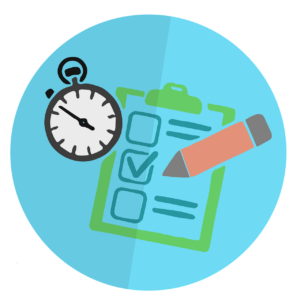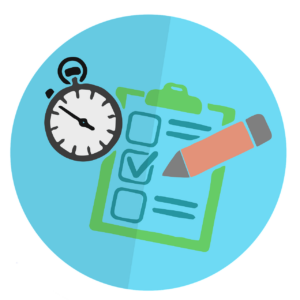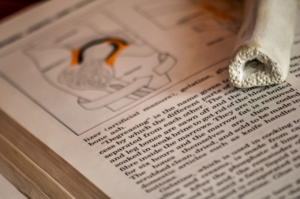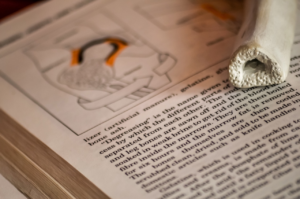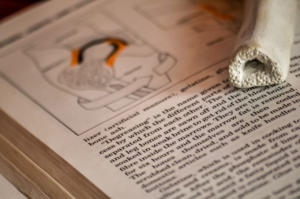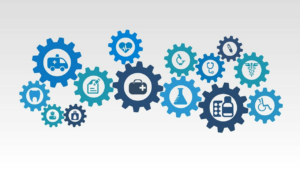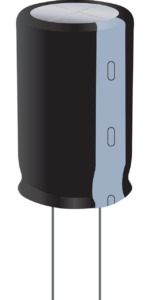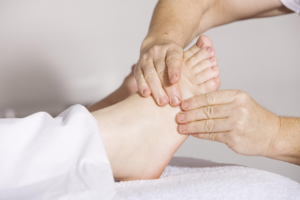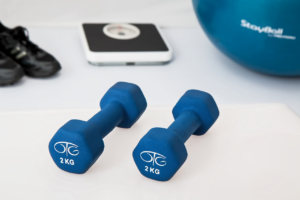Are you a nursing student preparing for an upcoming exam? Feeling overwhelmed with the amount of material you need to study? Don’t worry, with the right strategies, you can succeed in your nursing exams.
In this article, we will provide you with some helpful tips and tricks to help you prepare for your nursing exams and achieve success.
First and foremost, it is essential to understand the format and content of your nursing exam. This will help you to focus your study efforts on the most important topics and ensure that you are adequately prepared.
Developing a study plan is also crucial to your success. By creating a schedule and setting aside dedicated study time, you can break down the material into manageable chunks and avoid cramming at the last minute.
Additionally, utilizing effective study resources, such as textbooks, flashcards, and online resources, can help you to reinforce your understanding of the material and prepare for your exam.
Key Takeaways
- Understanding the format and content of the exam is important for success
- Utilizing effective study resources and active learning techniques can improve performance
- Prioritizing mental health through self-care and building a support network can reduce negative impact of stress and anxiety on performance
- Balancing learning methods and staying consistent with studying habits is crucial for success on nursing exams
Understand the Exam Format and Content
You’ll need to understand the exam format and content if you want to succeed, so let’s break it down together! Exam preparation is key to acing your nursing exam, and that starts with understanding the format and content. Knowing what to expect on the exam can help ease test anxiety and allow you to focus on the questions.
The nursing exam is typically divided into different sections, such as pharmacology, medical-surgical nursing, pediatrics, and so on. Each section will have a certain number of questions, and the exam may also include multiple choice, true or false, and short answer questions.
Understanding the format and content will allow you to focus your studying efforts on the areas that require the most attention, and help you feel more confident on exam day.
Develop a Study Plan
To develop a study plan for your nursing exam, you need to set realistic goals, create a schedule, and use active learning techniques.
First, determine your strengths and weaknesses and set achievable targets based on them.
Next, create a study schedule that includes breaks and time for self-care.
Finally, use active learning techniques like flashcards, practice exams, and group study sessions to reinforce your knowledge and prepare yourself for success.
Set Realistic Goals
If you want to succeed on your nursing exam, it’s important to set realistic goals for yourself. While it’s great to have big aspirations and high expectations, it’s also important to be realistic about what you can accomplish in the amount of time you have. Here are three things to keep in mind when setting your nursing exam goals:
-
Be specific: Instead of saying ‘I want to do well on the exam,’ set a specific goal such as ‘I want to score at least an 80% on the exam.’ This will give you a clear target to work towards and help you stay motivated.
-
Consider your time: Make sure your goals are achievable within the timeframe you have. If you only have two weeks to study, it may not be realistic to aim for a perfect score. Setting goals that are achievable within your timeframe will help you stay focused and avoid burnout.
-
Break it down: Break your goals into smaller, manageable tasks. This will help you avoid feeling overwhelmed, and will give you a sense of accomplishment as you complete each task. By breaking down your goals into smaller pieces, you’ll be able to see progress and stay motivated throughout the study process.
Remember, goal setting and time management go hand in hand. By setting realistic goals, you’ll be better equipped to manage your time effectively and make the most of your study sessions.
Create a Schedule
Organizing your study schedule is essential for staying on track and making progress towards your nursing exam goals. Time management is key when it comes to studying effectively. You need to allocate enough time for each subject and topic you need to cover, while also making sure to take breaks and rest to avoid burnout.
Creating a schedule also means choosing a suitable study environment. Find a place where you can focus and minimize distractions. This could be a quiet library, a coffee shop with white noise in the background, or a dedicated study space in your home.
Make sure you have all the materials you need, such as textbooks, notes, and flashcards, readily available. By creating a schedule and a conducive study environment, you can maximize your study time and increase your chances of success on your nursing exam.
Use Active Learning Techniques
Using active learning techniques is a valuable way to enhance your understanding and retention of the material when preparing for the nursing exam. These techniques involve engaging with the material actively, rather than just passively reading or memorizing information. Two effective active learning techniques are role playing exercises and group study sessions.
Role playing exercises can be especially helpful for nursing students. In these exercises, you simulate real-life scenarios that you might encounter as a nurse. This allows you to practice your critical thinking skills and apply the knowledge you have gained to practical situations. Group study sessions can also be beneficial. Collaborating with peers can help you gain new insights and perspectives on the material. Additionally, explaining concepts to others can reinforce your own understanding of the material. By incorporating these active learning techniques into your study routine, you can improve your chances of success on the nursing exam.
| Active Learning Technique | Explanation | |||
|---|---|---|---|---|
| Role Playing Exercises | Simulate real-life scenarios to practice critical thinking and apply knowledge | |||
| Group Study Sessions | Collaborate with peers to gain new insights and reinforce understanding of the material | Flashcards and Quizlet | Use memorization techniques to remember key concepts and terminology |
Use Effective Study Resources
You’ll want to make sure you’re utilizing effective study resources to maximize your chances of success on the nursing exam.
When it comes to flashcards vs. Quizlet, it really depends on your personal preference and learning style. Some people find that physical flashcards help them retain information better, while others prefer the convenience and accessibility of Quizlet. It’s important to experiment with both and see which method works best for you.
The same goes for textbook vs. video tutorials. While textbooks may provide more detailed information, video tutorials can be a great way to visually understand complex concepts. Again, it’s important to find what works best for you and utilize those resources to the fullest.
Remember, effective studying is about finding the right balance between learning methods and staying consistent with your studying habits.
Practice Test-Taking Strategies
To improve your chances of excelling in the test, it’s important to familiarize yourself with efficient test-taking strategies. Here are some tips to help you manage your time and stress during the exam:
-
Prioritize the questions: Start with the ones you know the answer to and move to the more challenging ones later on.
-
Use your time wisely: Allocate time for each question and stick to it. If you get stuck, move on and come back to it later.
-
Read the instructions carefully: Make sure you understand what’s being asked before you start answering the question.
-
Manage your stress: Take deep breaths and stay calm. Remember that stress can affect your ability to think and process information.
-
Check your work: Review your answers before submitting your exam. Make sure you’ve answered all the questions and that your work is neat and organized.
By following these test-taking strategies, you can improve your performance on nursing exams. Remember to stay focused and manage your time and stress effectively. With enough practice, you’ll be able to tackle any nursing exam with confidence.
Take Care of Yourself
Now that you’ve learned some valuable test-taking strategies, it’s time to focus on taking care of yourself. Self-care strategies are essential in ensuring that you are mentally and physically prepared for the exam. It’s easy to get caught up in the stress and pressure of studying, but neglecting your well-being can lead to burnout and ultimately affect your performance on the exam. In this section, we’ll discuss some self-care strategies and mental health awareness tips to help you prepare for exam day.
To begin, let’s take a look at the following table. It outlines some simple self-care strategies that you can incorporate into your routine to help reduce stress and enhance your well-being. Remember, taking care of yourself is not only important during the exam preparation phase but is also crucial for your overall health and success in your nursing career.
| Self-Care Strategies | Benefits |
|---|---|
| Get enough sleep | Improves cognitive function and memory retention |
| Practice relaxation techniques | Reduces stress and anxiety levels |
| Exercise regularly | Boosts energy levels and improves mood |
| Eat a balanced diet | Provides essential nutrients for optimal brain function |
In addition to the self-care strategies mentioned above, it’s essential to be aware of your mental health and seek support if needed. Nursing exams can be mentally draining, and it’s okay to feel overwhelmed. By prioritizing your mental health, you can reduce the negative impact of stress and anxiety on your performance. Remember to take breaks, practice mindfulness, and seek support from friends, family, or mental health professionals if necessary. By taking care of yourself, you’ll be better equipped to handle the demands of nursing school and your future career.
Seek Help When Needed
If you’re feeling overwhelmed or struggling with your mental health during exam preparation, don’t hesitate to reach out for support. Remember that seeking help isn’t a sign of weakness, but a brave and proactive step towards achieving success.
Here are some tips to help you build a strong support network and collaborate with others during your nursing exam preparation:
-
Join a study group or online forum where you can share study materials, ask questions, and get feedback from others who are also preparing for the same exam.
-
Talk to your nursing professors or academic advisors to get advice on study strategies, time management, and stress reduction techniques.
-
Connect with a mental health professional or counselor who can help you manage your anxiety, depression, or other mental health issues that may be affecting your exam performance.
-
Reach out to your family, friends, or peers for emotional support, encouragement, and motivation. They can remind you of your strengths, cheer you up when you’re feeling down, and celebrate your achievements with you.
By collaborating with others and building a support network, you can not only improve your exam performance, but also enhance your learning experience and develop valuable interpersonal skills that will benefit you in your future nursing career.
Don’t be afraid to ask for help when you need it, and remember that you’re not alone in this journey.
Frequently Asked Questions
What are some common mistakes that nursing students make during exams?
When taking nursing exams, common mistakes that students make include not reading the questions carefully, rushing through the exam, and not practicing enough beforehand.
It’s important to take your time and thoroughly understand each question before answering. Additionally, practicing with sample questions and mock exams can help you identify areas where you need to improve and build confidence in your test-taking abilities.
Remember, the more you practice, the more comfortable and prepared you’ll be on exam day.
How can time management be improved during the nursing exam?
To improve your time management during an exam, there are a few effective techniques you can use.
First, make a plan before you begin the test. Allocate a specific amount of time for each section or question, and stick to it. This will ensure that you don’t spend too much time on one question and run out of time for the rest of the exam.
Additionally, avoid distractions by turning off your phone and finding a quiet place to take the test. If you have trouble focusing, try using earplugs or noise-cancelling headphones.
Remember, staying focused and managing your time effectively are key to success on any exam.
What are some effective ways to combat test anxiety during the nursing exam?
When it comes to combating test anxiety, there are a few effective methods that you can try. One is to practice relaxation techniques, such as deep breathing or progressive muscle relaxation, before the exam.
Another effective method is to engage in mindfulness exercises, such as meditation or visualization, to help calm your mind and focus your attention. By incorporating these techniques into your study routine, you may find that you are better equipped to manage anxiety and perform well on exams.
Remember to take breaks when you need them, and to prioritize self-care in the days leading up to the exam. With a little preparation and mindfulness, you can approach the nursing exam with confidence and ease.
Are there any specific strategies for tackling multiple choice questions during the nursing exam?
When tackling multiple choice questions during an exam, there are a few guessing tactics you can use to increase your chances of getting the answer right.
One such tactic is to eliminate the answers you know are incorrect using the process of elimination. This can help narrow down your options and increase the probability of guessing the correct answer.
Another guessing tactic is to look for keywords within the question and answer choices that can provide hints as to the correct answer. However, it’s important to keep in mind that guessing should always be a last resort and not relied upon as the main strategy for answering questions.
How can nursing students ensure they are fully prepared for the exam on the day of the test?
To ensure you’re fully prepared for the exam on test day, it’s important to establish study techniques that work for you. This might include breaking up your studying into manageable chunks, using flashcards or practice quizzes to reinforce your knowledge, or seeking out additional resources such as study groups or tutoring.
On the day of the exam, establish an exam day routine that will help you feel calm and focused. This might include arriving at the testing center early, bringing all necessary materials such as a calculator or pencils, and taking a few deep breaths to calm your nerves before beginning the test.
Remember to trust in your preparation and take your time reading and answering each question carefully. With the right study techniques and exam day routine, you can feel confident and prepared for success on test day.
Conclusion
Congratulations! You’ve just learned some valuable nursing exam tips and tricks that can help you succeed in your upcoming exams. By understanding the exam format and content, developing a study plan, using effective study resources, practicing test-taking strategies, and taking care of yourself, you can be well-prepared for your nursing exams.
Remember, nursing exams can be challenging, but with the right preparation and mindset, you can do well on them. Don’t forget to seek help when needed, whether it be from your professors, peers, or tutors.
Keep practicing and studying, and you’ll be on your way to becoming a successful and knowledgeable nurse.
Best of luck to you on your nursing journey!

















